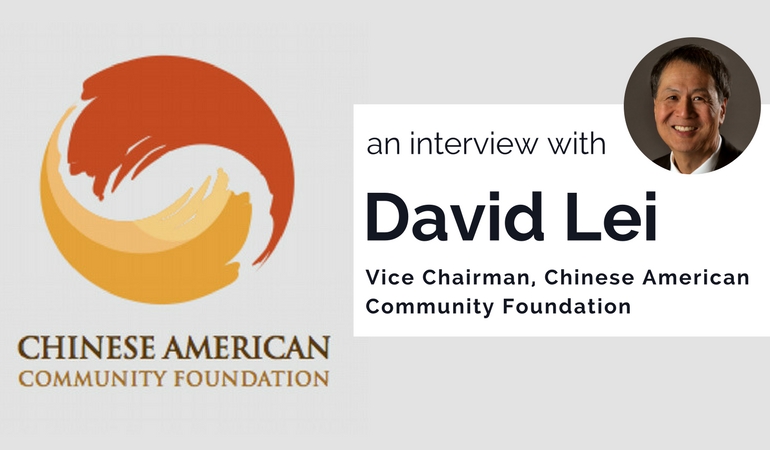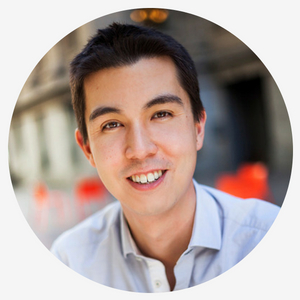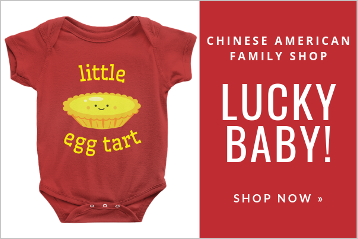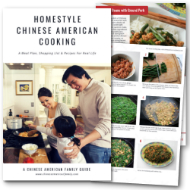This article is part of our Spotlight on Chinese American Leaders. Sign up for our newsletter to receive family-friendly activity, recipe and craft ideas throughout the year!
The San Francisco area highlights economic contrasts in the Chinese American community that aggregate data can mask. Across the region, wealthy suburbs radiate outward from a historic urban Chinatown where the median household income was $17,630 in 2010 and 32% of residents lived in poverty.
To explore avenues to help those in greatest need, I recently spoke with David Lei, vice chairman of the Chinese American Community Foundation, a San Francisco Bay Area organization that engages Chinese Americans through community philanthropy. Our conversation focused on ways to sustain non-profits serving Chinese Americans and identified steps to become impactful donors of money, talent and time.
To me, the basic philanthropic building blocks of giving and volunteering are plainly visible among Chinese Americans. Celebrating many Chinese festivals incorporates care for the less fortunate and mutual aid associations have strengthened the Chinese American community since the Gold Rush. Even the inexpensive groceries at Chinatown markets can be seen as a shared social benefit in an immigrant community.
To become a donor, David suggests extending a traditional sense of family duty to care for the broader community, before working to cultivate a personal connection with a specific cause or organization. Community giving can provide basic access to social services in Chinatown, promote the appreciation of the arts or focus national attention on issues like immigration and civil rights to directly support Chinese Americans.
David generously shared his perspective as a philanthropist and community advocate. He talks about trends in Chinese American philanthropy, continuing the ongoing fight for immigrant rights and the importance of sustaining non-profit organizations that strengthen the Chinese American community. These are edited excerpts from our conversation.
Let’s start with the 30,000 foot view. What are the primary trends in Chinese American philanthropy today? Who are the primary donors and what are the organizations they support?
The trend is moving up. It looks pretty optimistic — Asian Americans, with Chinese Americans the majority part of that group, are the top income earners among all ethnicities with the highest education level and they are increasingly accepted in mainstream America. The organizations receiving donations vary by giving group. The younger generation likes to pick specific projects, while the older generation prefers donor advised funds. Overall, these are more educated individuals who have earned their own money and want more control over who they give to on an annual basis.
We’re seeing community foundations getting more of these types of donations from donor advised funds and planned gifts. Organizations that reach out specifically to Asians have been quite successful in obtaining major gifts, not only from Chinese Americans, but from Chinese overseas. Schools, hospitals and senior facilities are the traditional areas receiving support. The largest donations are made by immigrant Chinese, less so by the American born.
What are the areas of greatest need in the Chinese American community and where can philanthropy dollars have their greatest impact?
While Chinese Americans are high earning on average, the community is fractured into many different groups. Chinese Americans living in Silicon Valley are generally professionals with the highest income and education levels. In contrast, San Francisco’s Chinatown has the highest population density next to Manhattan, the highest suicide and tuberculosis rates in the nation, and the lowest education and income levels in the city. So we have the whole range.
The areas of need are very much in San Francisco’s Chinatown. We have about 40 non-profits, plus the family and district associations, and other institutions working to help recent immigrants and the elderly from the villages survive. These are the people in need.
Some giving is misdirected, I think, like individual scholarships. It’s tough to identify a deserving student and then I often ask the donor, do you have $160,000 for this? Because it’s going to cost $40,000 over four years. If you’re just going to give $5,000, the student still needs to find the rest.
Instead, I want to direct donors towards ways to leverage their dollars, for instance, by hiring counselors who speak Chinese to give parents workshops about getting their kids into college. I say “support” instead of “scholarships” — teach the parents how to look for financing and how to get their kids into the best colleges. It’s better than giving scholarships to individual students.
What advice do you have for young families who are just starting to think about charitable giving? How do you broaden the idea of caring for family to include the broader Chinese American community?
That’s a hard one because most Chinese are raised to take care of their immediate family and clan first. In traditional China, without Social Security and the social safety net, you can only rely on your immediate family and clan to save you, if you have a problem. So you have to break out of that mindset in America and feel truly American to do this. It’s the idea that to make society work, you have to support society in general.
In America, we have three forms of organizations. For profit corporations, which make money, give jobs to employees and do well economically. Government, which does the basic things necessary to make the country work. Then we have non-profits, which are totally different altogether. Their mission is to do the best in something that neither the government nor for profit corporations can do. They’re supported directly by the citizens. As donors, you get to select what you support. As a non-profit, you have to find sponsors and supporters to make something the best it can be.
Can you give me one of your favorite examples of a contribution that’s made a significant impact for an organization or project?
There are so many. In Chinatown alone, there are about 35 non-profits that I work with on a regular basis, and they’re all worthwhile. My advice? Pick something that you believe in and research it. See what kind of impact an organization makes, not just the numbers, and find one that speaks to you. Join a group of people that can make the change you want to see in society and add meaning to your life. It’s about your money and the impact you wish to make through an organization that can work more efficiently than you can alone.
I work with the San Francisco Ethnic Dance Festival, because I like art and my background is in dance. We work with about 400 dance groups, representing 100 cultures. It only happens in the Bay Area where we have that type of diversity.
What every dance group needs is money. The problem is that the members of many of these dance groups are immigrants from other countries, so it’s very hard for them to apply for grants. I funded a grant writer to give a workshop for these groups, then gave each one of the groups two hours of the grant writer’s time to look at an application, suggest changes and then review it all again before it was submitted. About half the dance groups that attended and applied received a grant, so this really leveraged my donation. I paid for the grant writer, but the amount received multiplied many times.
I felt really good about this result and continue to support groups with their grant writing. Often times the executive director is too busy or doesn’t know about available grants, but that’s what these grant writers are for. They know what’s out there and can help these organizations get the money. As a result, this approach is the best use of my money.
You’ve mentioned the importance of developing a personal connection with your charitable efforts. How can Chinese Americans tie their giving to their cultural values?
First, be curious about the culture, ask why? Why are things the way they are? Things that have existed a long time normally have values and emotions behind them. So don’t look at the culture or particular rituals simplistically. China has the oldest living culture in the world. Why has it lasted so long? There are certain things about the culture that help its people survive and these are the wisdom and traditions passed on from our ancestors, if you’re Chinese. Look at them and read deeply, drink deeply. There are a lot of lessons for us, our ancestors talking to us. This is what you do to survive and achieve.
We’re very proud of our culture and what it’s done for us, which is why we want to pass it along to future generations. What we sometimes forget is that our descendants will probably not look like us. The odds are that after two generations, our descendants will look like all Americans, all mixed. So what we pass on has to be in the American context, and not too narrow and ethnocentric. We need to reinterpret the culture for America because our descendants will be Americans.
The current political environment has put national attention on causes like reproductive rights, immigration and criminal justice reform. How can donors connect these national headlines with local organizations in the Chinese American community?
The subject that’s really current is immigration. If you look through Chinese American history deeply, our real contribution has been our fight for immigrant rights and civil rights. Because the Chinese were the first to be excluded from coming into this country in 1882 with the Chinese Exclusion Act, we were the first to organize and push back.
We brought more than 20 cases to the Supreme Court and won many of them. Out of a population of 100,000 Chinese in American during the Exclusion Period, we brought more than 10,000 lawsuits against the federal government over immigration rights and civil rights, and won many of them. That is our history, we need to continue it. We should really be the first group out there to speak up for immigration rights.
In closing, tell me about your organization, the Chinese American Community Foundation and how it can help potential donors connect with organizations.
The Chinese American Community Foundation was started by a few friends led by Dr. Rolland Lowe, who just passed last year. We’ve been active in San Francisco’s Chinatown for many years. We’re all of that generation that experienced overt discrimination, so Chinatown was really our community and support. Everything surrounding the community, we wanted to build up. One of the things we wanted to do was help the non-profits doing good work in Chinatown reach sustainability. That means large financial gifts, which makes individual giving very important.
We wanted to make it easier and more efficient for Chinese Americans to give back through non-profits. We direct donations and get donors involved with different organizations in the community. We’re the conduit. Many Chinese American families own a home, they’re millionaires, they have enough. Of course their first concern is for their kids, but maybe they’ll set aside 10% for organizations that supported them when they were growing up. Whether it’s their school, the YMCA, Cameron House, their church, whatever. We help them sustain and continue their good work.
###
Your turn! What Chinese American organizations do you support with your charitable giving? What inspiration do you draw from David’s experience?





Dave C
LOVED this article. The insight the interviewee, David Lei, provided was on point. I will think deeper on our Chinese culture and why it has persevered for so long. Many times when Chinese culture contradicted American culture I defaulted to A > C. Now I may take a second look. Another great point is leaving behind the superficial exterior emphasis… our grandkids/descendants probably won’t be easily 100% Asian or easily identifiable. I’ll also look to make how I present Chinese culture to my kids more inclusive going forward.
DOPE article!!
Wes Radez
Glad you enjoyed the interview, Dave. David Lei was a great person to interview. I hadn’t previously read an interview on the subject of philanthropy in the Chinese American community, so found the discussion enlightening, as well. ~Wes